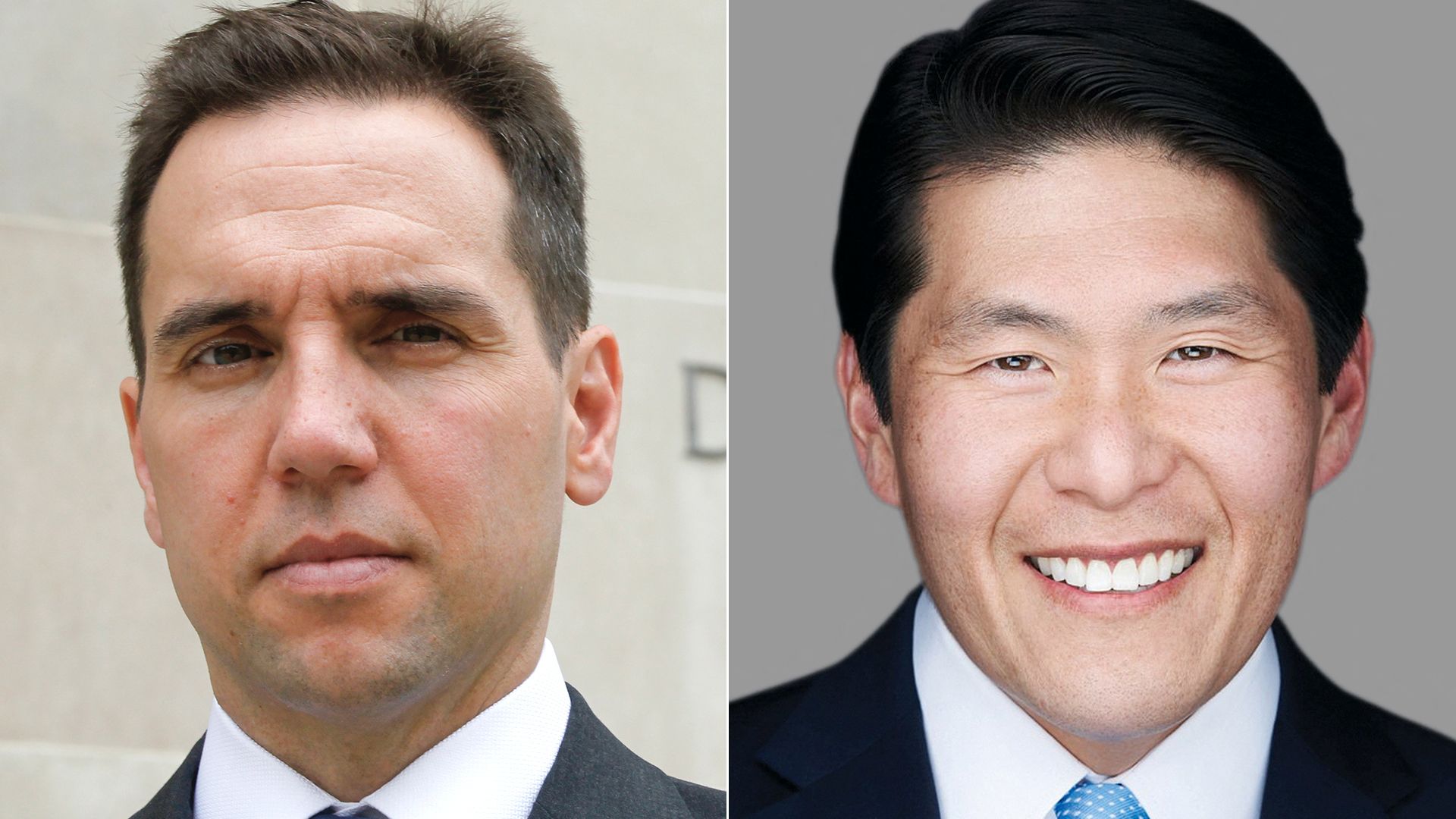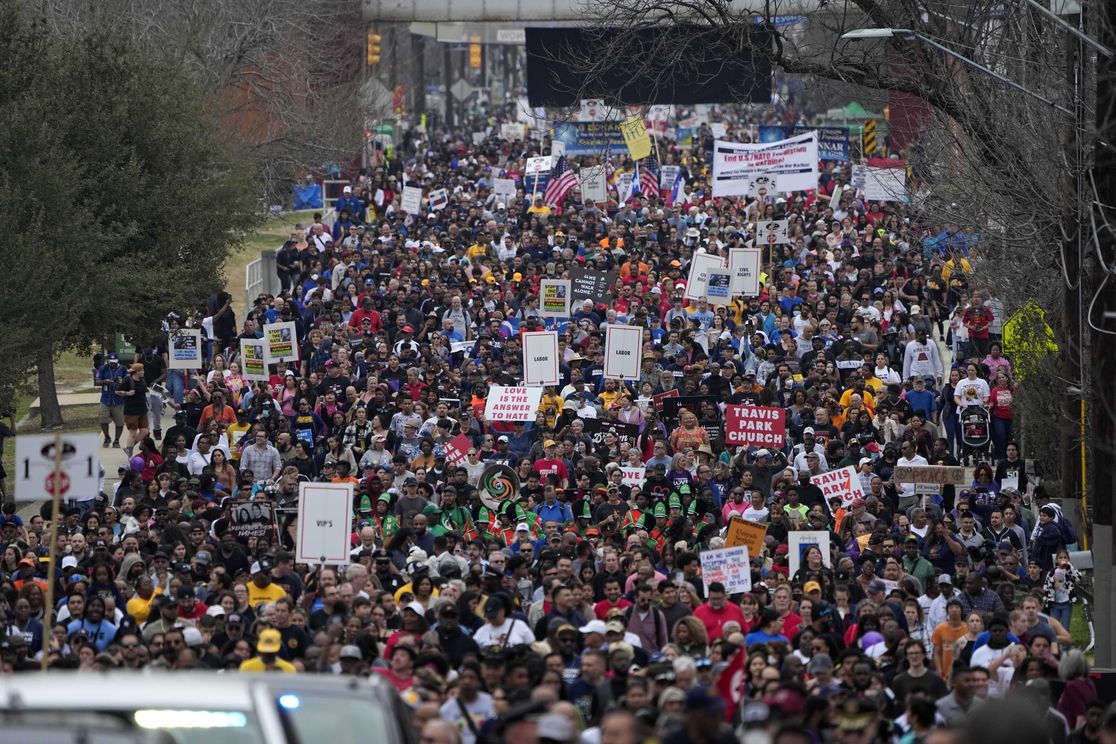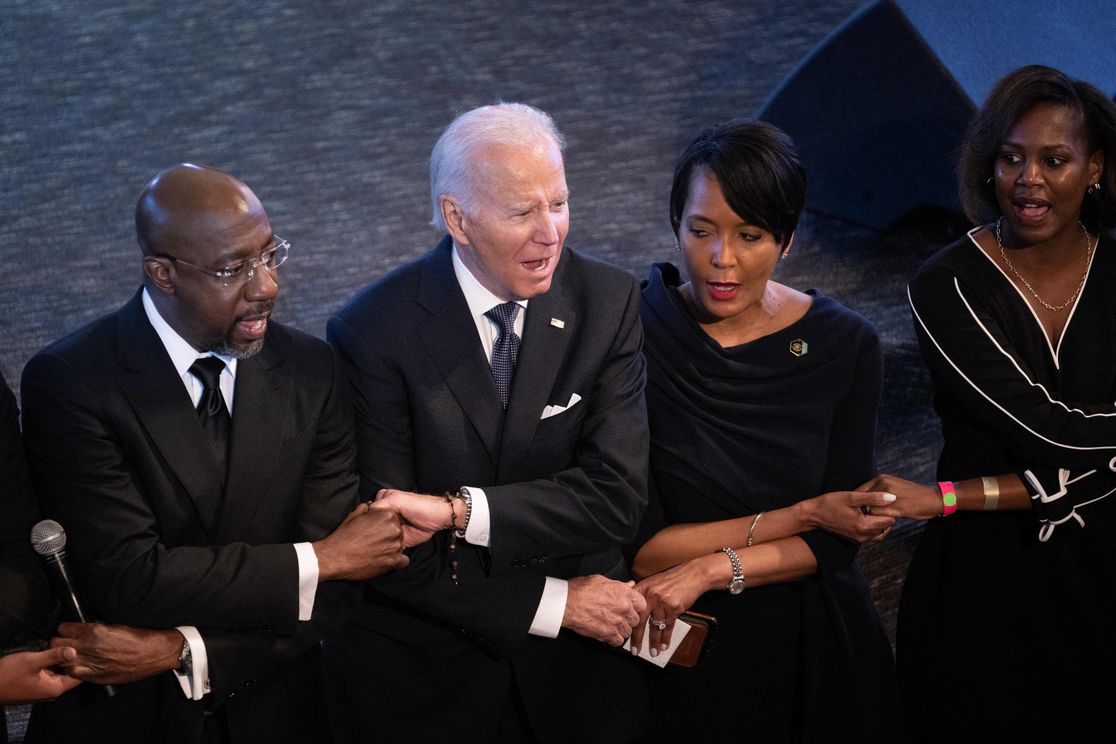| |
| |
| |
| Presented By Bank of America |
| |
| Axios AM |
| By Mike Allen · Jan 17, 2023 |
| 👋 Hello, Tuesday. Smart Brevity™ count: 1,492 words ... 5½ minutes. Edited by Noah Bressner. ⚡ Situational awareness: President Biden will travel Thursday to areas of California's central coast hit by flooding. Go deeper. |
| |
| |
| 🇨🇭 1 big thing: Power of Davos |
 |
|
| Illustration: Brendan Lynch/Axios |
| |
| Attendance is booming this week at the first full-fledged World Economic Forum in three years, drawing CEOs and powerhouses of government, tech and media to the Alps of Davos, Switzerland. - According to organizers, this year's forum will host a record number of business and government leaders — 50 heads of state, 56 finance ministers, 19 central bank governors and 600+ CEOs.
- A WEF official told reporters they'd never had so few cancellations.
Why it matters: Davos is the world's greatest hotel lobby. Power players can pack their schedules with high-level meetings, sip champagne with clients and eye competitors, Axios' Dave Lawler and Courtenay Brown write. State of play: Davos faces growing skepticism and competition, leading some to contend that it could slide into irrelevance. - But Davos still holds an allure for companies and countries seeking global investment and respect. The new presidents of Colombia and the Philippines are attending. Startup founders are competing for attention with blue-chip companies.
Andy Baldwin, global managing partner for EY, tells Axios the professional services giant keeps coming back to Davos because of the unique "constellation" of high-level attendees across sectors. He'll be seeing clients from around the world all week, and "I'll see the CEOs." Davos yesterday. Photo: Fabrice Coffrini/AFP via Getty Images 🖼️ The big picture: Davos' celebration of globalization — and core premise of bringing the international elite together to solve global problems — can feel like a relic of the post-Cold War haze. - Quips about taking private planes to a ski resort to lament climate change have become an annual tradition.
🥊 Reality check: A clear majority of the world leaders are from Europe, when global power is seeping away from the continent. Just one G7 leader — German Chancellor Olaf Scholz — made the trip. - President Biden isn't coming. Treasury Secretary Janet Yellen is traveling to Switzerland to meet Chinese Vice Premier Liu He tomorrow, but not stopping in Davos.
Many of the usual suspects are here: the CEOs of JPMorgan Chase and Goldman Sachs ... European Central Bank chief Christine Lagarde ... U.N. Secretary-General António Guterres. - Climate envoy John Kerry and Secretary of Labor Marty Walsh are among U.S. attendees.
The bottom line: Davos is a self-perpetuating phenomenon. As long as global elites keep coming, global elites will keep coming to meet them. |
    |
| |
| |
| 2. 🔋 Axios investigates: EV charging favors wealthier |
 |
|
| Illustration: Sarah Grillo/Axios |
| |
| Electric vehicle chargers are easier to find in whiter, wealthier neighborhoods nationwide, an Axios analysis finds. - Why it matters: Concerns over charging access are one of the biggest holdups preventing more car buyers from going electric — along with high EV prices, Axios' Alex Fitzpatrick, Joann Muller and Erin Davis write.
State of play: Automakers and lawmakers are pushing EVs as a cleaner alternative to traditional cars. - But charging infrastructure inequities threaten to limit who gets to enjoy the benefits of the generational transition away from internal-combustion engines, including cleaner air and lower long-term costs.
🧮 By the numbers: Majority-white census tracts are about 1.4 times as likely as majority-non-white tracts to have a charger, according to our analysis of the 35 U.S. cities with the highest share of EV sales nationwide. - Tracts with chargers are about 1.14 times as wealthy as those without them.
- Our analysis relied on EV market-share data from S&P Global Mobility + charger location information from the Energy Department.
Racial disparities around charging access are particularly pronounced in certain cities and metro areas: - In Philadelphia, majority-white tracts are 3.9 times as likely to have a charging station. In Chicago, they're 2.8 times as likely. In New York, they're 2.6 times as likely.
- In each of those cities, majority-white tracts are about as likely to have a gas station as majority-non-white tracts.
Charging inequities are less pronounced elsewhere. - In San Francisco (a major hub for EV ownership), Dallas and Portland, Ore., chargers are about as common in majority-white tracts as they are in other neighborhoods.
🕶️ What to watch: The Biden administration is aiming to curtail some of these inequities under a program that pumps $5 billion into a nationwide EV charging network, and provides another $2.5 billion in grants for "community-based" charging infrastructure. |
    |
| |
| |
| 3. 🐘 GOP plans prolonged doc probe |
 |
|
| Dueling special counsels: Jack Smith (left) probes former President Trump. Robert Hur investigates President Biden. Photos via AP, Reuters |
| |
| I'm told House Republicans will keep hammering President Biden about classified documents, after a White House statement said they "should face questions themselves about why they are politicizing this issue." - A letter this weekend from House Oversight Chair James Comer (R-Ky.) demands visitor logs for Biden's Wilmington residence.
- The Secret Service and White House said there aren't visitor logs for the president's personal residence.
- Now look for the GOP to ask about people who have been screened to see Biden there.
White House spokesman Ian Sams said Biden "is cooperating fully with a thorough review, but House Republicans are playing politics in a shamelessly hypocritical attempt to attack President Biden." |
    |
| |
| |
| A message from Bank of America |
| Critical capital for small businesses |
| |
 |
| |
| CDFIs have often been lenders of first resort to small and minority-owned businesses in underserved communities. Bank of America's new white paper explores the potential for the financial services industry to expand partnerships with CDFIs as a channel for economic opportunity. |
| |
| |
| 4. 📷 1,000 words |
| Photo: Eric Gay/AP In San Antonio yesterday, thousands marched for Dr. Martin Luther King Jr. Day. |
    |
| |
| |
| 5. 🏛️ First test for divided government |
 Data: Treasury Department, FactSet. Chart: Thomas Oide/Axios We're in the first inning of a high-stakes debt-ceiling fight — the first major test for America's new divided government, Matt Phillips writes for Axios Markets. - Why it matters: Votes to raise the debt ceiling — once a bipartisan chip shot — have become increasingly fraught in recent years.
Treasury Secretary Janet Yellen informed Congressional leaders Friday that the federal government would likely hit the debt limit this Thursday. - So the Treasury will take "extraordinary measures" to keep paying creditors who own the U.S. government's bonds.
- That should last until at least early June, she said.
🔎 Between the lines: Wall Street analysts think that if push comes to shove, the government can continue to pay bondholders until sometime in August or September. - After that, Uncle Sam might actually be forced to default on its debt, an event that could seriously shake the foundations of the global market and financial systems.
⚠️ Threat level: So far, there's little sign that the market is worrying too much about the threat of a serious crisis. (Though if you squint hard at Treasury futures, you can see some indication traders see trouble brewing in late summer and early fall.) 🐘 The other side: Asked about the debt limit Sunday on CNN's "State of the Union," House Oversight Chair James Comer (R-Ky.) told Jake Tapper: "We campaigned on the fact that we were going to be serious about spending cuts. So ... we're not going to budge until we see meaningful reform with respect to spending." 🥊 President Biden, at the National Action Network's MLK Day breakfast in Washington, said yesterday of Republicans: "These guys are ... fiscally demented, I think. [Laughter] ... They don't quite get it." - Go deeper: The Bipartisan Policy Center has a great explainer on the debt limit and how we got here.
|
    |
| |
| |
| 6. 🇨🇳 China population falls for first time in 60+ years |
| Beijing financial district on Wednesday, with buildings under construction. Photo: Tingshu Wang/Reuters China reported a decline in population for the first time since 1961, marking the beginning of a demographic crisis for the world's most populous country. - Why it matters: It's a clear inflection point that will slowly but dramatically change Chinese society and politics over the next few decades, Axios' Rebecca Falconer and Bethany Allen-Ebrahimian write.
By the numbers: 850,000 fewer people lived in China at the end of 2022 compared to the previous year, according to data from Beijing's National Bureau of Statistics. 🔭 Zoom in: China's economy grew just 3% last year, well short of the ruling Chinese Communist Party's 5.5% target. - Except for 2020, that's the country's worst GDP figure since 1976 — the year Mao Zedong died, The Wall Street Journal reports.
Share this story ... Get Axios China. |
    |
| |
| |
| 7. 📚 Out today: New Mike Schmidt |
 |
|
| Cover: Random House |
| |
| New York Times legal scoop machine Mike Schmidt wrote a 12,000-word afterword for the paperback edition of his bestselling "Donald Trump v. The United States," out today. After retired four-star Marine general John Kelly became White House chief of staff in 2017, he found President Trump "had no grasp on the basics of American foreign policy," Schmidt writes: - "Why did we go to war in North Korea?" Trump would ask Kelly. "Why the f--- are we in NATO?"
"Trump seemed to have no interest in — and be confused by — Kelly's explanation that nations created a deterrence against Russia by committing to a collective defense," Schmidt continues. - "What the f--?" Trump said.
Kelly would tell aides: "He has this thing that he knows more than the generals, the economists, the geologists. He is incapable of saying, 'I don't know anything; I need some advice.'" Go deeper: Read Chapter 1 + listen to an audio sample (read by Mike). |
    |
| |
| |
| 8. 💭 Quote for the road |
| President Biden sings "We Shall Overcome" on Sunday at Ebenezer Baptist Church in Atlanta. Photo: Brendan Smialowski/AFP via Getty Images President Biden, who turned 80 in November, speaking Sunday at Ebenezer Baptist Church in Atlanta: "You've been around for 136 years. I know I look like it, but I haven't." [Laughter.] |
    |
| |
| |
| A message from Bank of America |
| Expanding access to credit through CDFIs |
| |
 |
| |
| A new Bank of America white paper identifies how financial institutions can address longstanding gaps in access to credit and advance economic inclusion through CDFI partnerships. BoA is currently the largest private investor in CDFIs with over $2 billion in investments across 250+ CDFI partners. |
| |
| 📬 Thanks for starting your morning with us. Please invite your friends to sign up. |
 | | Are you a fan of this email format? Your essential communications — to staff, clients and other stakeholders — can have the same style. Axios HQ, a powerful platform, will help you do it. | | |












No comments:
Post a Comment
Keep a civil tongue.